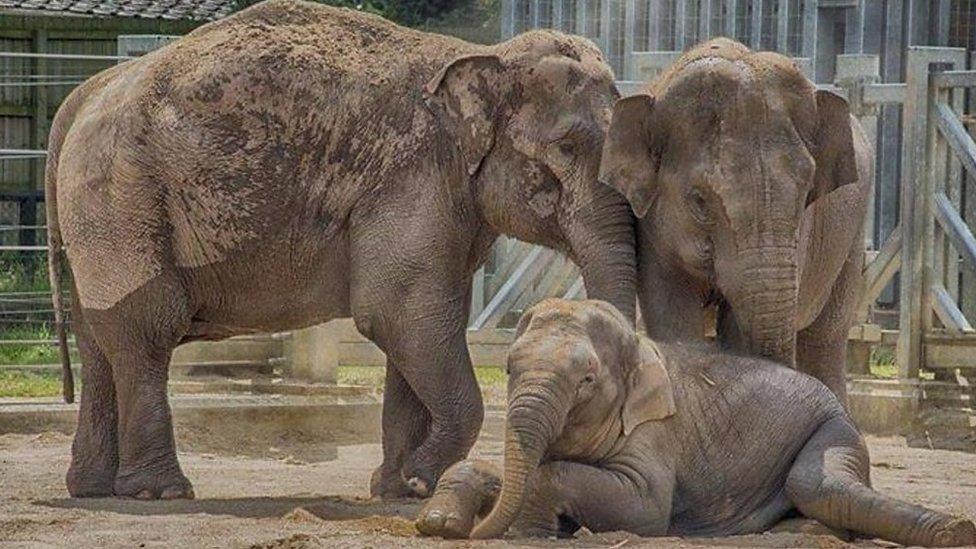Which animals are happy with people's visits to the zoo?
- Published
- comments
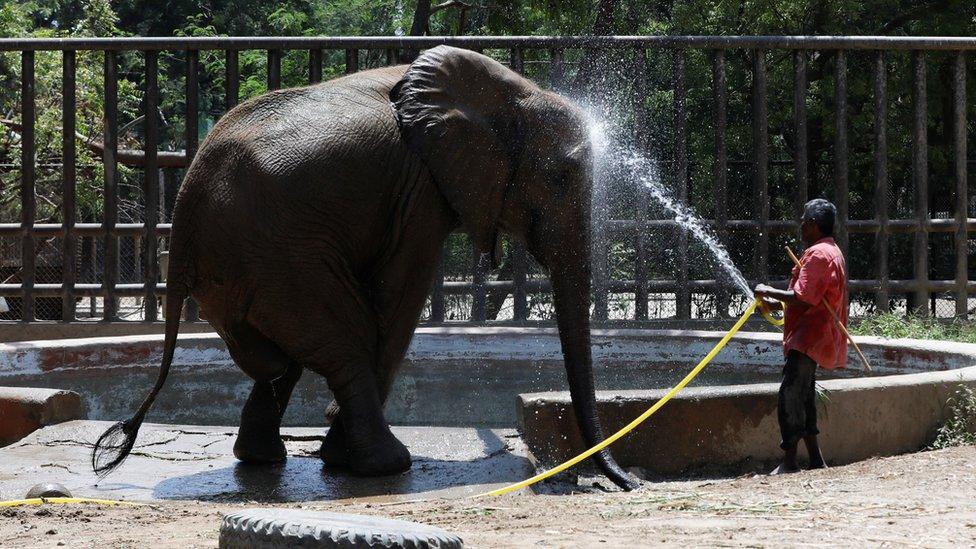
It turns out elephants like human visitors to the zoo
Do you enjoy a visit to the zoo? Well it turns out elephants enjoy people visiting them too.
A new study looked at the behaviours of 250 animal species, looking at how they responded to visitors.
Animal behaviour experts discovered that elephants, in particular, enjoyed having people around.
They found these giant mammals are less bored when taking part in activities with people, like public feedings.
Elephants weren't the only animal who appeared to enjoy a visit from people to the zoo. Penguins, jaguars, grizzly bears and cheetahs are more sociable when human visitors are around too.
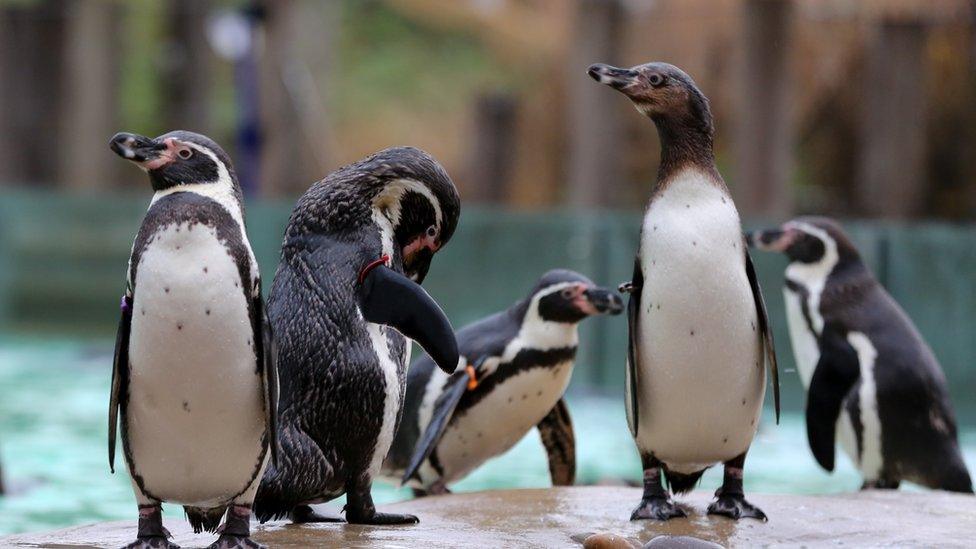
Penguins in the zoo responded well to having people visit them
Birds like the long-billed Corella also responded well to human company.
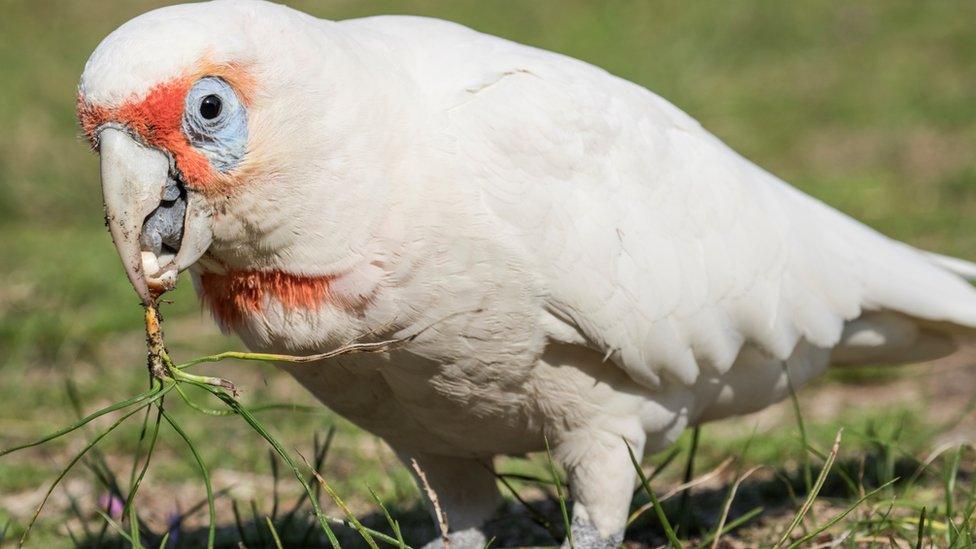
Long-billed Corella's spent more time close to human visitors on busy days in the zoo
But not all zoo animals respond well to being paid a visit.
Dr Samantha Ward, from Nottingham Trent University said: "Zoo visitors are often aspects of a zoo animal's environment that animals cannot control and as such can be stressful, although some species appear to show good adaptability for the changing conditions of visitors.
"We have identified that species show varied responses to people in zoos - some cope well, others not so well."
Some of these creatures who don't enjoy the company of visitors and had a negative response include ostriches, flightless birds and hedgehogs.
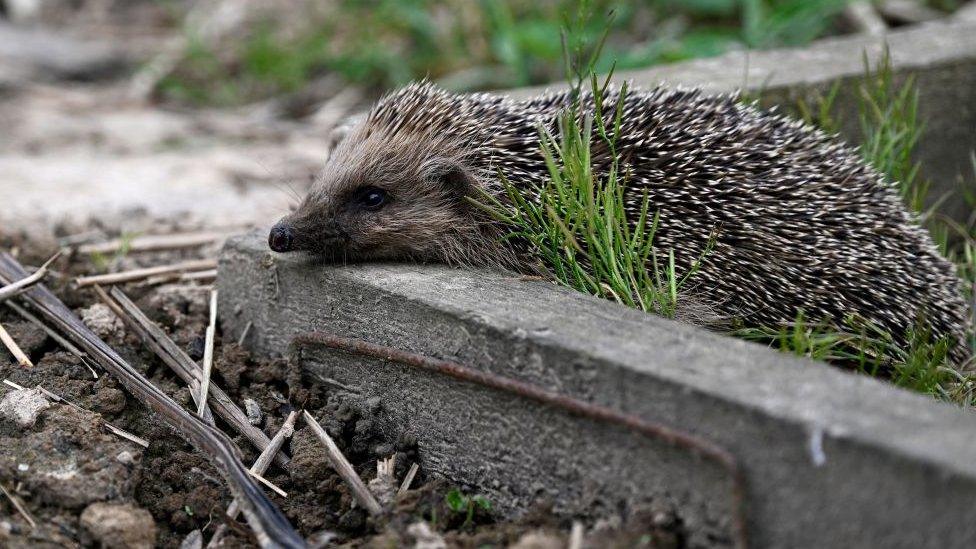
Hedgehogs did not enjoy the company of visitors to the zoo
Experts from Nottingham Trent University and Harper Adams University who studied the zoo species found that these animals might find visits stressful.
However the study found the reaction to visitors across all zoo animals was "predominantly neutral".
"Animal responses are attributed to various factors and recognising what these may be is important to improve welfare," said Dr Ellen Williams, a zoo animal welfare scientist at Harper Adams University in Shropshire.
"In elephants and birds it was encouraging to see a reduction in those repetitive behaviours towards something more positive in the presence of people, although the absence of change in the majority of species was also really good, because it suggests enclosure design is changing to better support animals in responding to visitors."
- Published5 October 2016

- Published12 August 2023
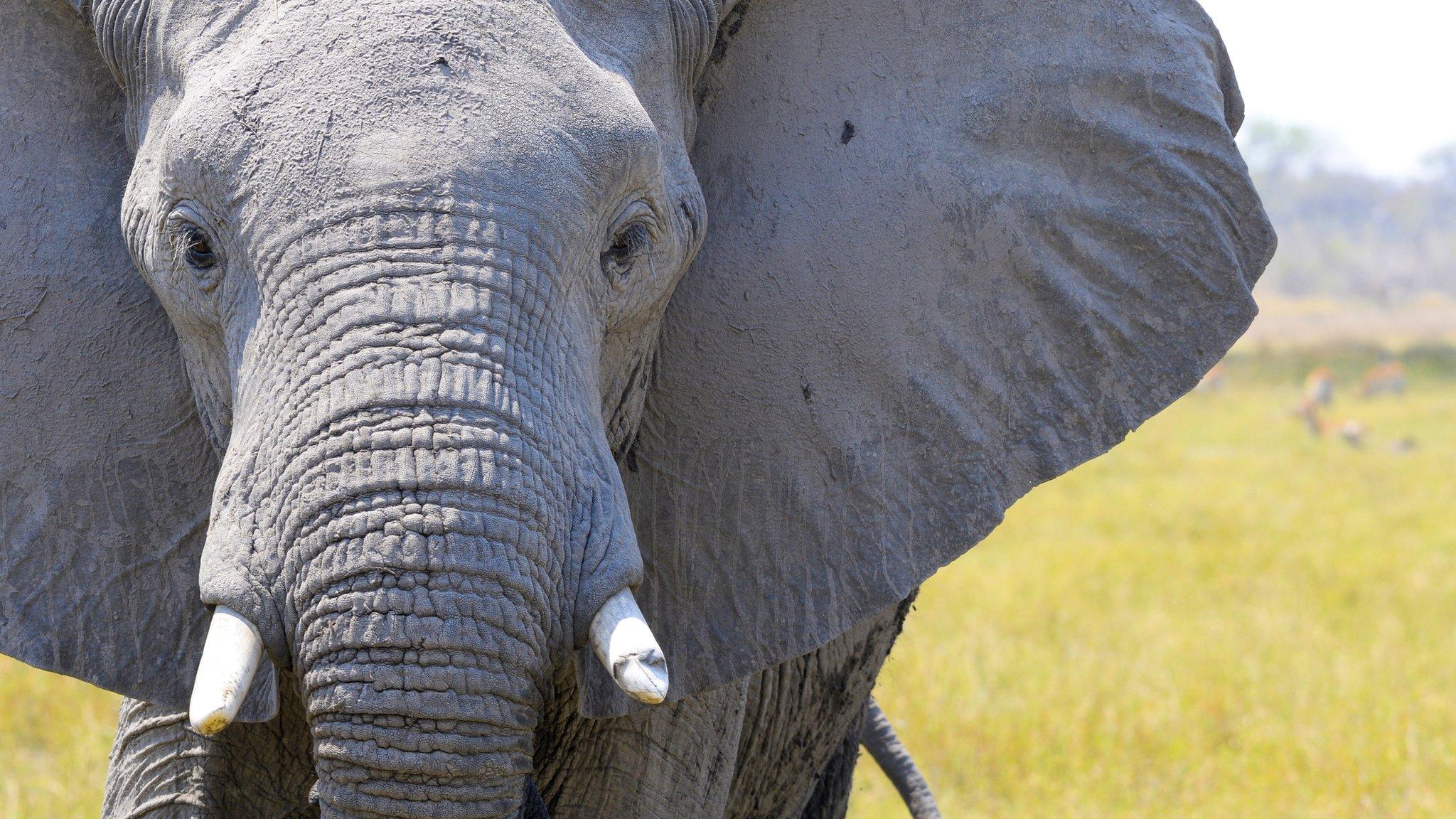
- Published23 July 2018
